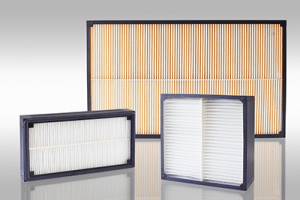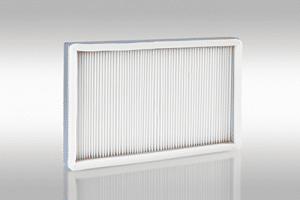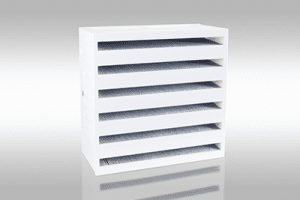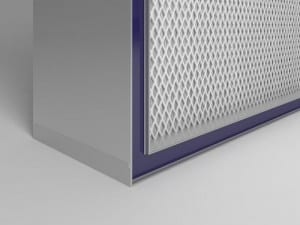Industrial Engineering
Bestair Filter – Best Air In Every Envoironment

Bestair Industrial Filter
The Bestair product line includes:
- – Coarse and fine dust filter according to EN 779
- – HEPA EN 1822
- – AMC filter.
Air filters are essential products that ensure a constant indoor climate, the efficiency and safety of industrial processes and protect the humans, animals, and the environment.
Products In The Range Industrial Engineering Find Application In:
- – Clean room technology (microelectronics, pharmaceutical, life science)
- – The food industry (manufacturing, packaging / bottling)
- – Hospitals and pharmacies (operating rooms, laboratories)
- – Surface engineering (painting, powder coating)
- – The processing and treatment of the air (oil mist, welding and laser smoke)
- – Power engineering (Gas turbine)
- – Building services (heating, ventilation, air conditioning)

Bestair Coarse Dust Filter
Coarse Dust Filter
Coarse dust filters are filters that extract insects, textile fibers and hair, sand, fly ash, pollen, spores, cement dust and other particles having a particle diameter> 10 µm. The filters are classified according to the European standard EN 779. This Filter Classes are differentiated G1 to G4 according to their degrees of efficiency.
Bestair provides filter within these classes in different versions: ppi foams based on polyurethane, filter mats made of synthetic and glass fiber and also pleated filter based on synthetic filter and glass fiber media. Different frame and sealing systems can be varied depending on the application. Standard dimensions and designs are available as well as customized solutions.

Fine Dust Filters (special design)
Fine Dust Filters
Fine dust filters are filters which remove particles of sizes from 1 to 10 µm. This involves, among other things, the bacteria and germs on host particles, oil smoke and agglomerated soot, tobacco and metal oxide smoke. The filters are also classified according to the European standard DIN EN 779: 2012 in filter classes M5 to F9. This class determining factor is the efficiency against particles of size 0.4 µm.
Bestair provides filters within these classes in different versions. Filter fleece and filter mats on a synthetic basis, as well as pleated filters based on synthetic and glass fiber media. Different frame and sealing systems can be varied depending on the application. Standard dimensions and designs are available as well as customized solutions.

Bestair HEPA Fluidseal
Bestair HEPA
HEPA filters remove dust, aerosols and bacteria with a particle diameter <1 µm. The European standard for the classification of HEPA is the DIN EN 1822-1: of 2009. A distinction is made in (H) EPA and ULPA filter in filter classes E10 to U17. The determining factor is the efficiency against particles with diameters of 0.1 to 0.3 µm (MPPS). Particles of this size are the hardest particles to be captured. Bestair provides filters within E10 – U17 classes based on the latest glass fiber technology and membrane technology. Different frame and sealing systems can be varied depending on the application. Standard dimensions and designs are available as well as customized solutions. We also offer silicone-free filters as well as filters for high temperature applications. Bestair HEPA are tested against leakage (oil thread test, Filter Scan Test) and are delivered with corresponding certificates.

Bestair AMC Filter
AMC Filter
AMC stands for airborne molecular contamination. AMC filters remove airborne or air dissolved molecular contaminants. Those can not be captured with conventional filtration methods, but by adsorption or chemisorption.
Activated carbon filters are widely used for this type of applications, and also for the separation of volatile organic compounds (VOCs) and especially of hydrocarbons.
The adsorptive, therefore purely physical effect of the activated carbon can be upgraded by impregnation with certain chemicals or reinforcing the catalytic effect to an additional or exclusively chemisorptive effectiveness. Such activated carbon types are effective against sulfur dioxide, hydrogen sulfide, hydrogen peroxide, nitrogen oxides, ammonia or heavy metals.
Activated carbon filters are also suitable for ozone depletion.
In addition to activated carbon, impregnated activated carbon, zeolite, and ion exchange we are also able to put into use substances such as potassium permanganate.
Bestair provides various designs of AMC filters. These include filter cartridges, carbon foams and carbon fleece, pleated filters and filter based on active carbon honeycomb structures.
Different frame and sealing systems can be varied depending on the application. Standard dimensions and designs are available as well as customized solutions.
